When William Hanna and Joseph Barbera’s original Flintstones cartoon first aired back in 1960, it was a clever, campy celebration of suburban sprawl and a very particular kind of middle class American Dream™. In Mark Russell and Steve Pugh’s recently-ended Flintstones comic series, that same dream is explored in a much darker, funnier way.
DC
Baked into every Hanna-Barbera joke about a prehistoric animal being used as an appliance was the idea that consumerism and the economic power to consume were integral parts of Bedrock’s society making its way into the future. In many ways, Russell and Steve Pugh’s The Flintstones series has been playing with many of the original cartoon’s same ideas about domestic life and society. But where Hanna-Barbera’s Bedrock was built upon a wide-eyed hope for technology’s impact on the future, The Flintstones of today is a much more sobering reflection on late stage capitalism systems, religion, and the meaning of true happiness. It’s also funny as hell.

On its most basic level, The Flintstones has been a comic about an impending apocalypse that no one on the planet can stop. Unbeknownst to the citizens of Bedrock, the earth is being monitored by the Great Gazoo of the planet Zetox, who has been sent to survey humanity and deem whether or not it deserves to exist.
This overarching threat to Fred, Wilma, Barney and Betty’s lives is literally the least interesting thing about The Flintstones, but it serves as a foundation for the comic’s thoughtful series of character-driven subplots.
In The Flintstones, Fred and Barney are still physical labourers and Betty and Wilma are happy homemakers raising families in one of Bedrock’s residential neighbourhoods. At first glance, each of the main characters is every bit the icon of heteronormative suburbia that you remember from the original cartoon. Rather than merely recreating the characters’ personalities, though, The Flintstones heightens them and challenges us as readers to consider the consequences of things such as trying to be the ultimate working class breadwinner.
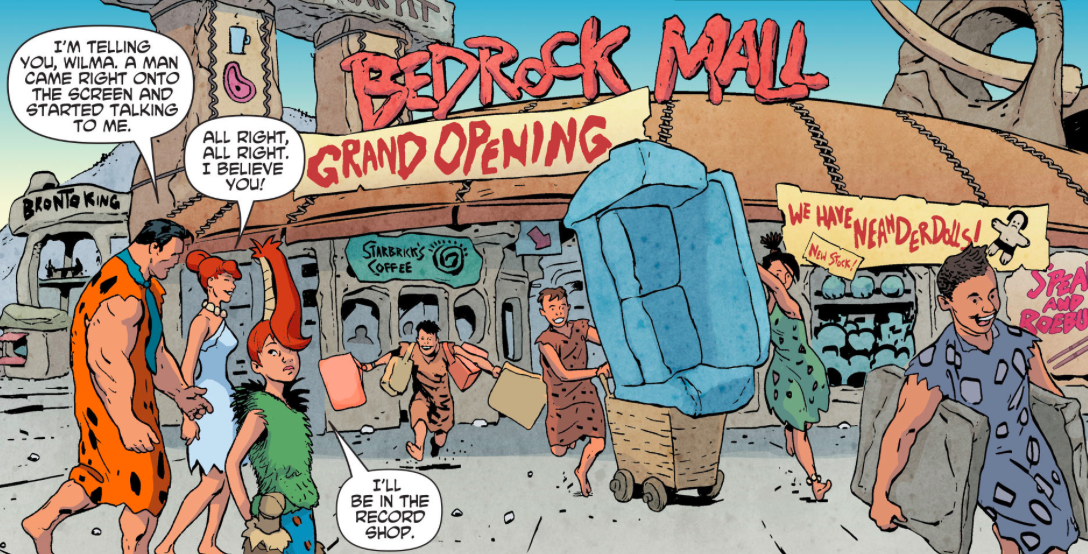
The Flintstones opens with an all-too familiar story straight out of Bedrock: Fred’s having troubles at work with Mr Slate and Wilma’s busying herself with personal artistic endeavours that Fred’s too thick-skulled to take interest in. Fred, facing competition from a new crew of Neanderthal workers, feels pressured to better perform at the Slate Quarry. Wilma, on the other hand, is struggling to break into Bedrock’s burgeoning, but hyper exclusive art scene with her abstract paintings.
These plot lines sound simple enough, but The Flintstones gives them a dark gravity and weight that Hanna-Barbera never would have dared. It isn’t just that Fred feels the need to compete with the Neanderthals, it’s that he can conceive of his value as a husband and father in terms of his ability to buy his family things at the new shopping centre.
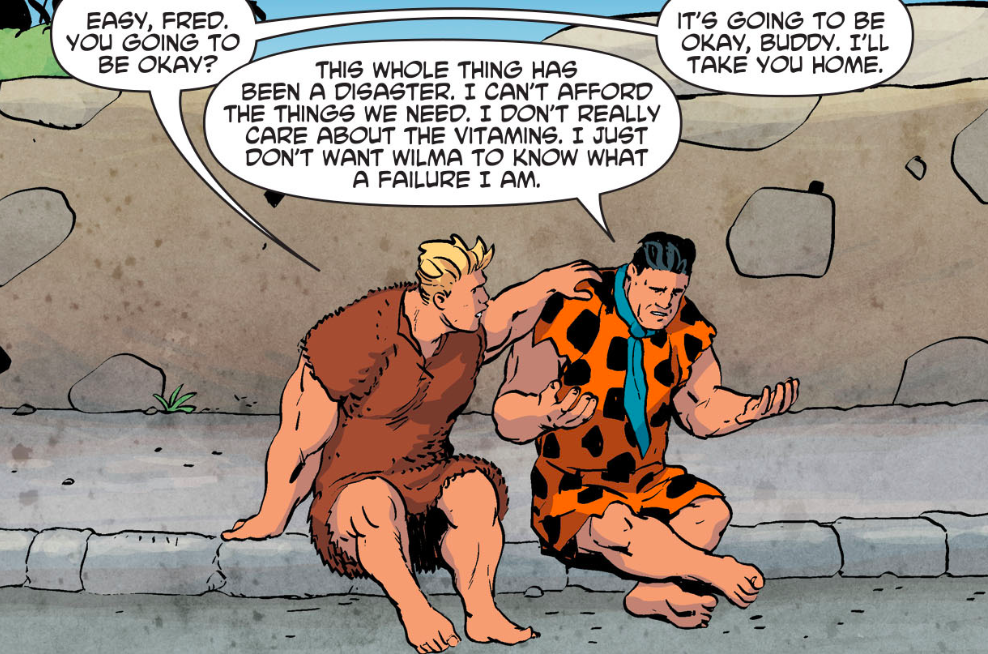
Wilma isn’t just a bored housewife looking to get into a kooky subplot meant to be wrapped up within the course of one issue. She’s an artist dealing with the frustrations that comes with being misunderstood not only by your competitive peers, but also by the people who presumably love you. Elsewhere in the Flintstone house, Pebbles is contemplating the existence of a higher power after a series of religious changes in the town’s only church leave her perplexed and doubtful.
Each and every single character The Flintstones introduces has a depth to them that’s at turns surprising and deeply understandable. You don’t expect to see characters like these in a book about cave people, and yet the moment that you do, they’re immediately recognisable.
There are the backgrounds citizens of Bedrock who, displeased with their current mayor who was unable to fulfil all of their desires for the city, turn to an incompetent strongman leader who makes promises that he could never keep. There are the veterans of the great war with the Tree People who, as Bedrock’s health system for veterans deteriorates, can’t get access to the physical and psychological therapies they need to reintegrate into society.
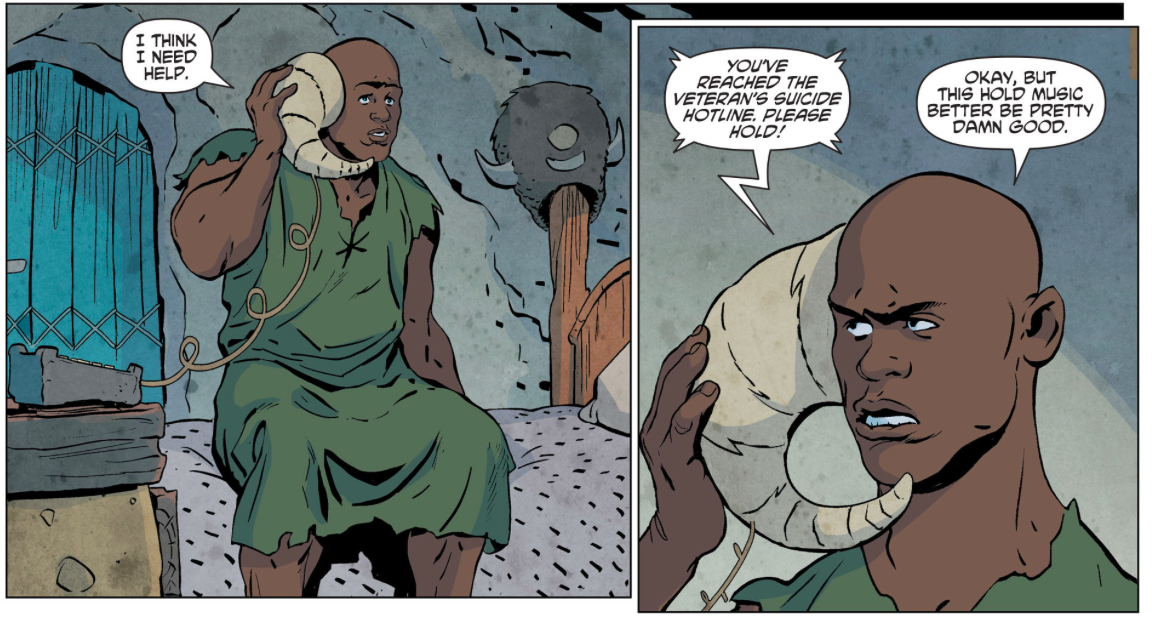
The Flintstones takes a serious look at a number of societal institutions like marriage and religion and pokes at the parts of them that highlight how utterly unnecessary they can seem when divorced of our cultural reverence. Larger ideas like impermanence of life do play a role in the lives of The Flintstones‘ human characters, but it’s the cast of talking animals relegated to lives as “appliances” that spend the most time reflecting on their mortality.
Over the course of the series’ 12 issues a pink elephant vacuum cleaner and an armadillo bowling ball develop a deep friendship in Fred Flintstone’s living room. Their bond begins with Bowling Ball setting Vacuum Cleaner free from the closet at night and, in time, the two trade stories about the horror that is being treated as an object rather than a being by humans. It’s a dark take on the original Flintstones animal-as-appliance humour, but it also highlights The Flintstones‘ core contention that in our pursuit of more things, we become things ourselves as our humanity decays.
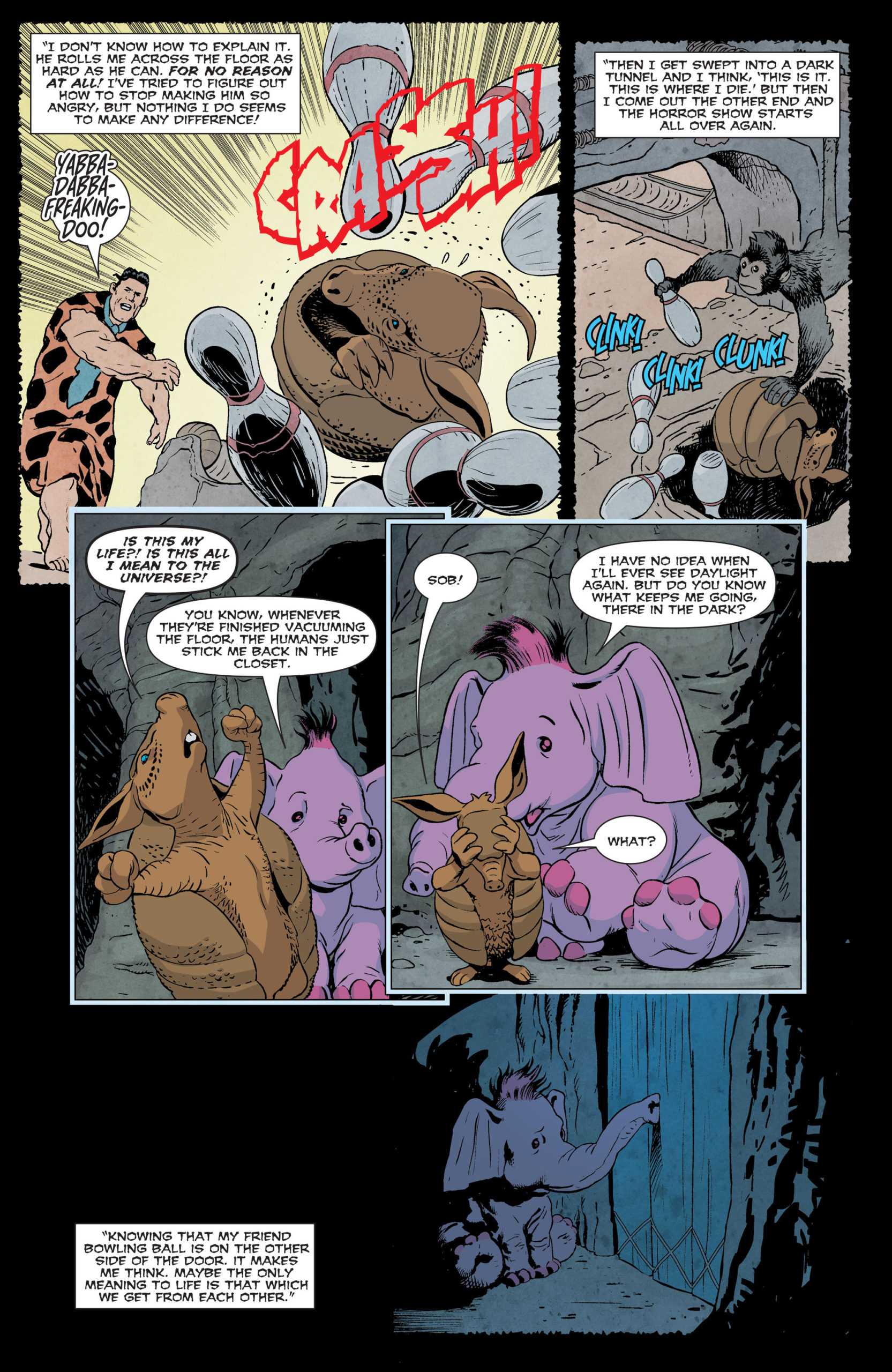
Asking oneself the meaning of life, The Flintstones suggests, is sort of pointless because there is no one set answer for us all — and life could, you know, be meaningless. Rather, The Flintstones is asking its characters and readers to take stock of our time and energy, revaluate how we’re spending them, and try to find reasonable joy in what’s already available to us.
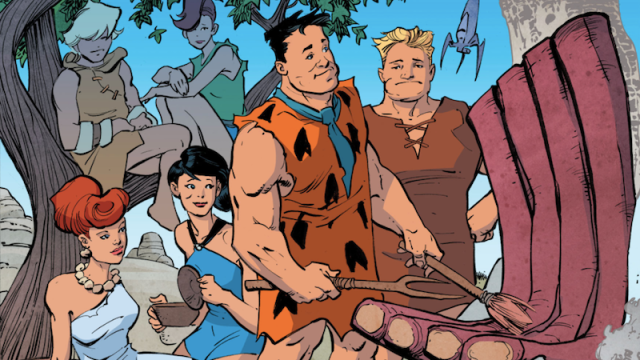
Comments